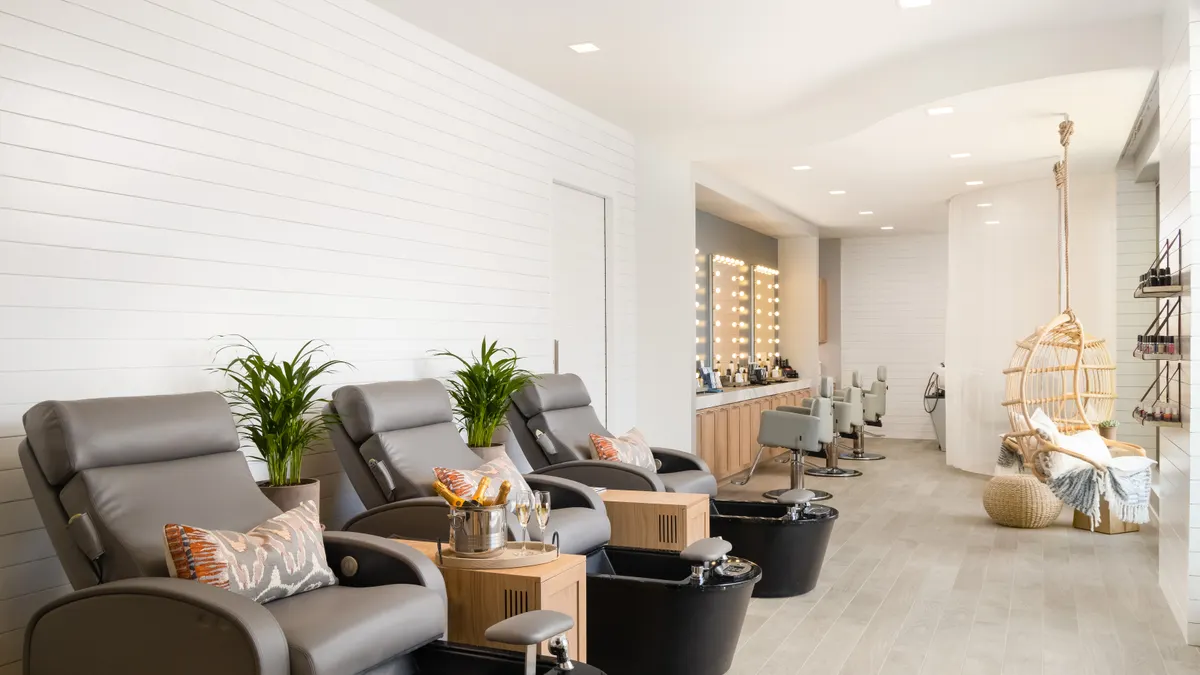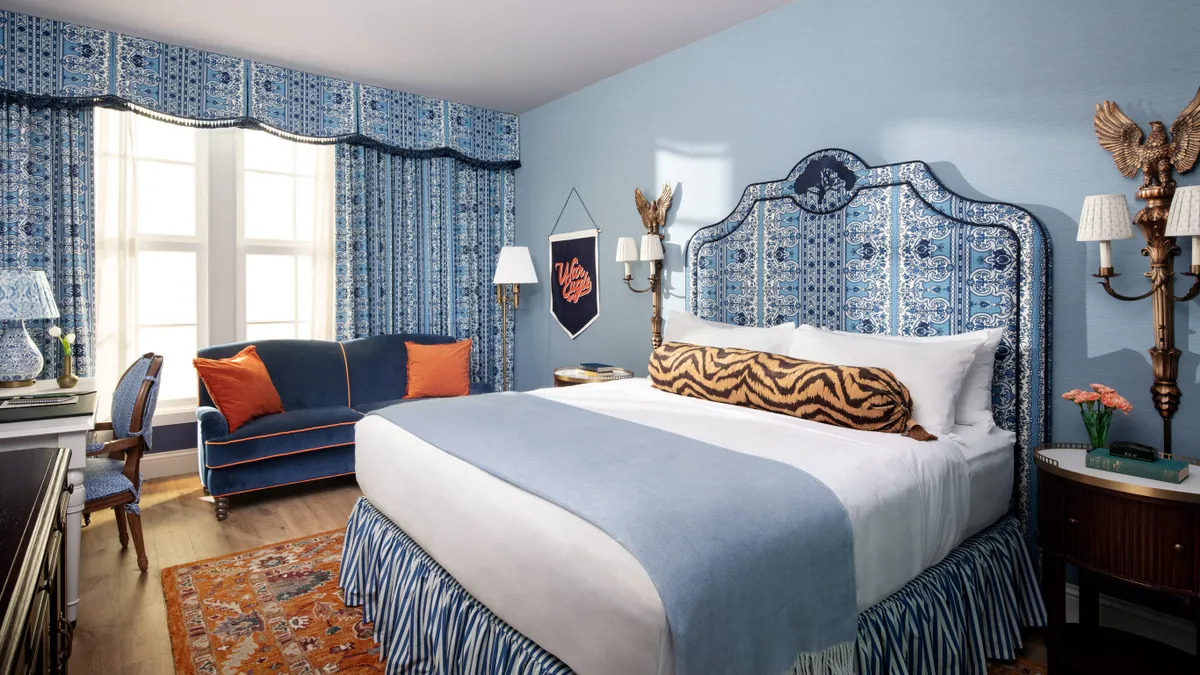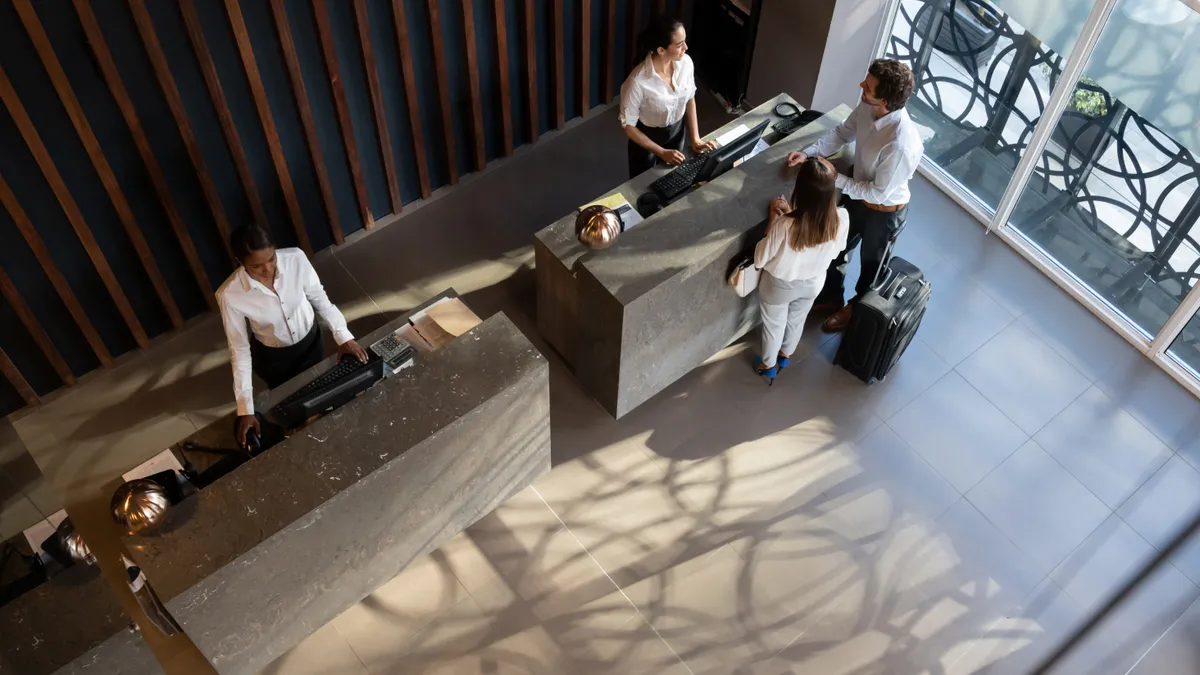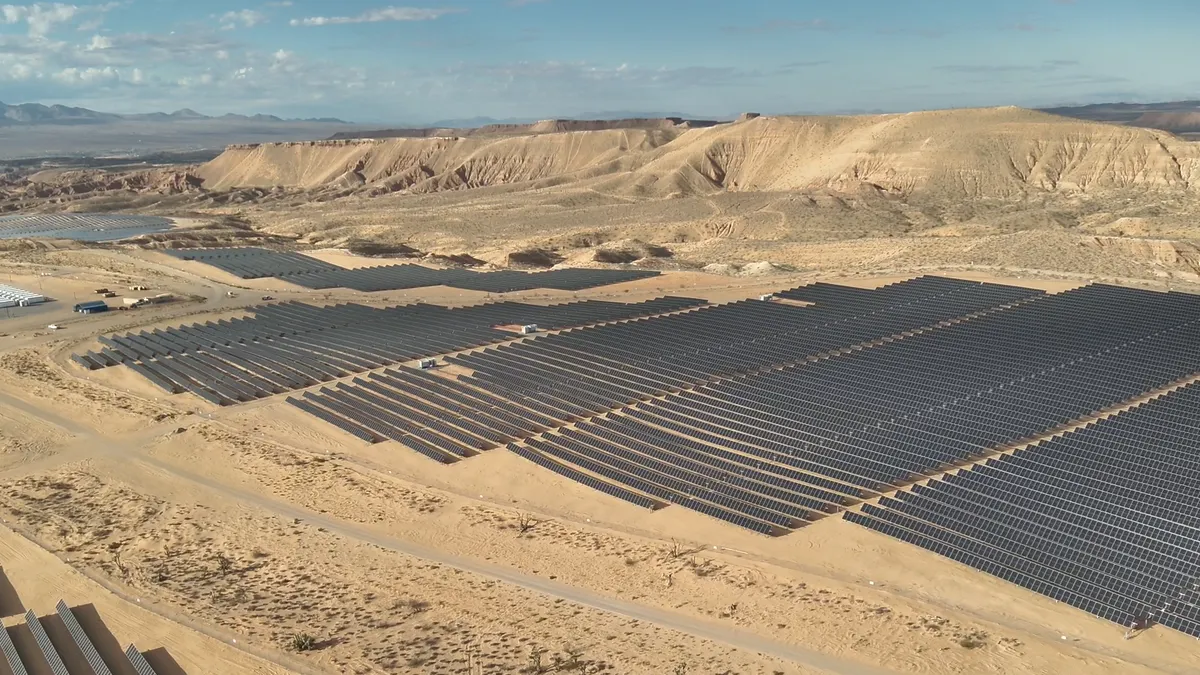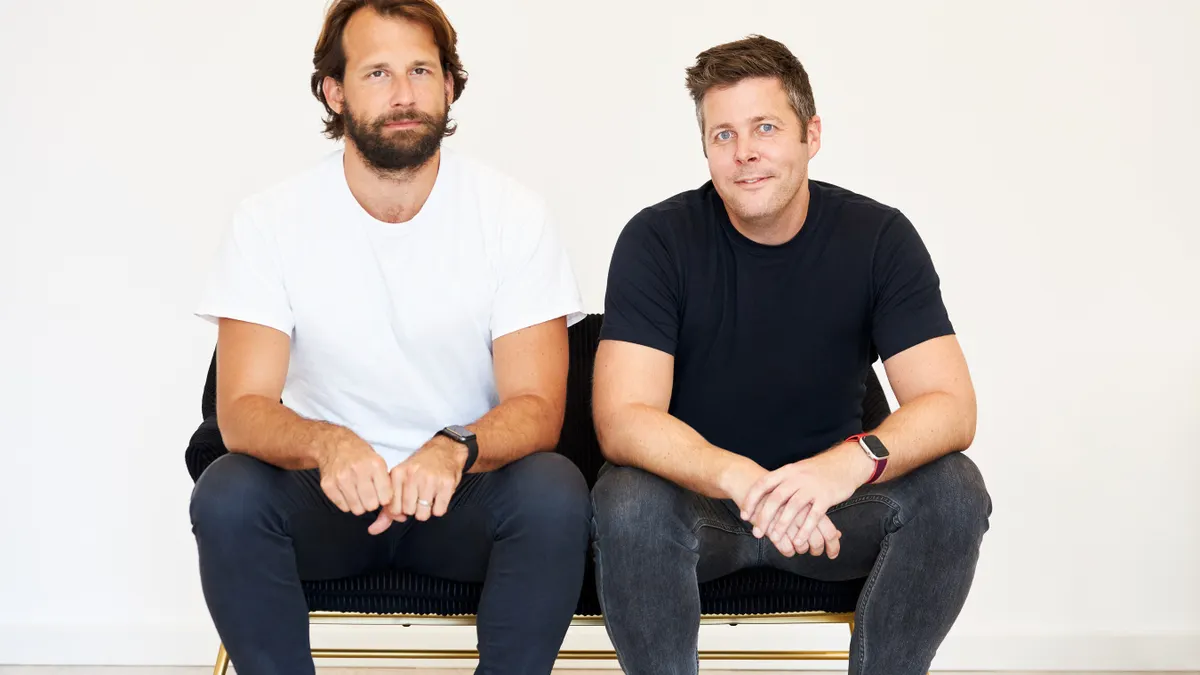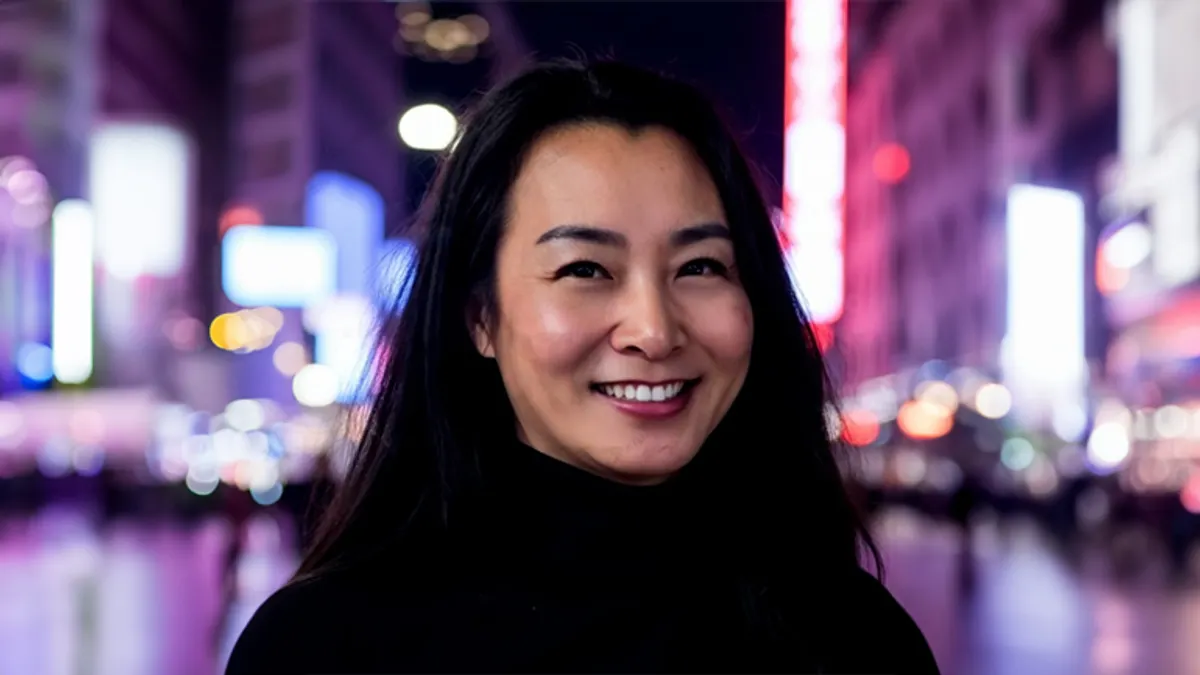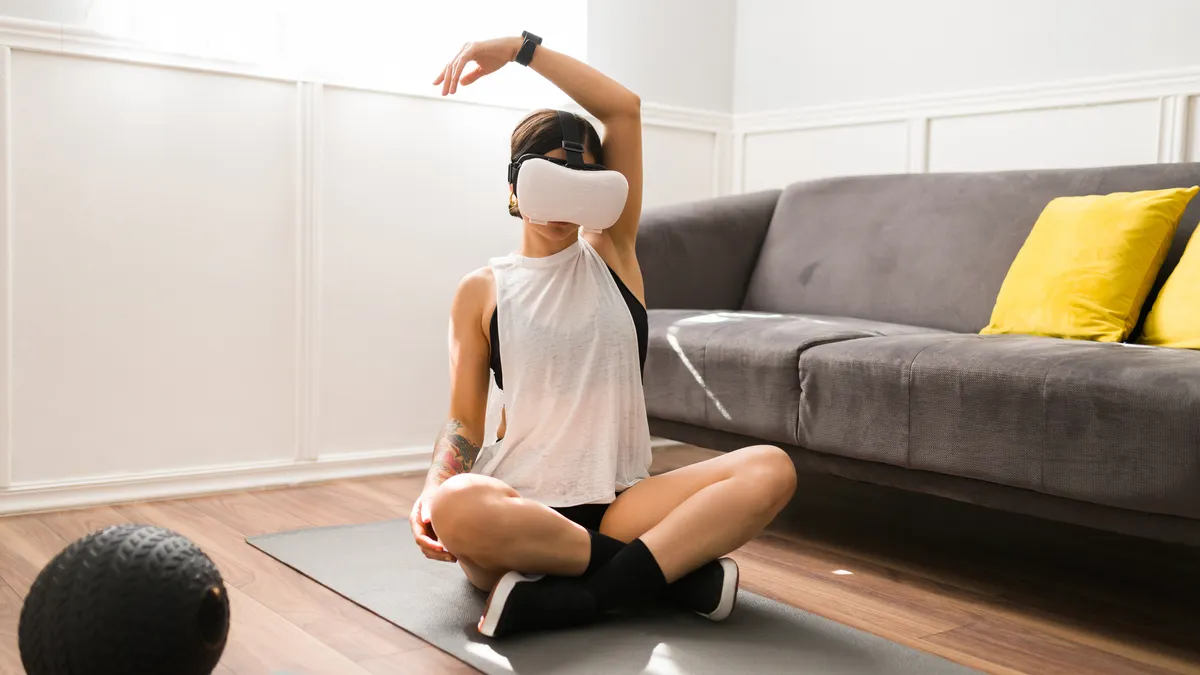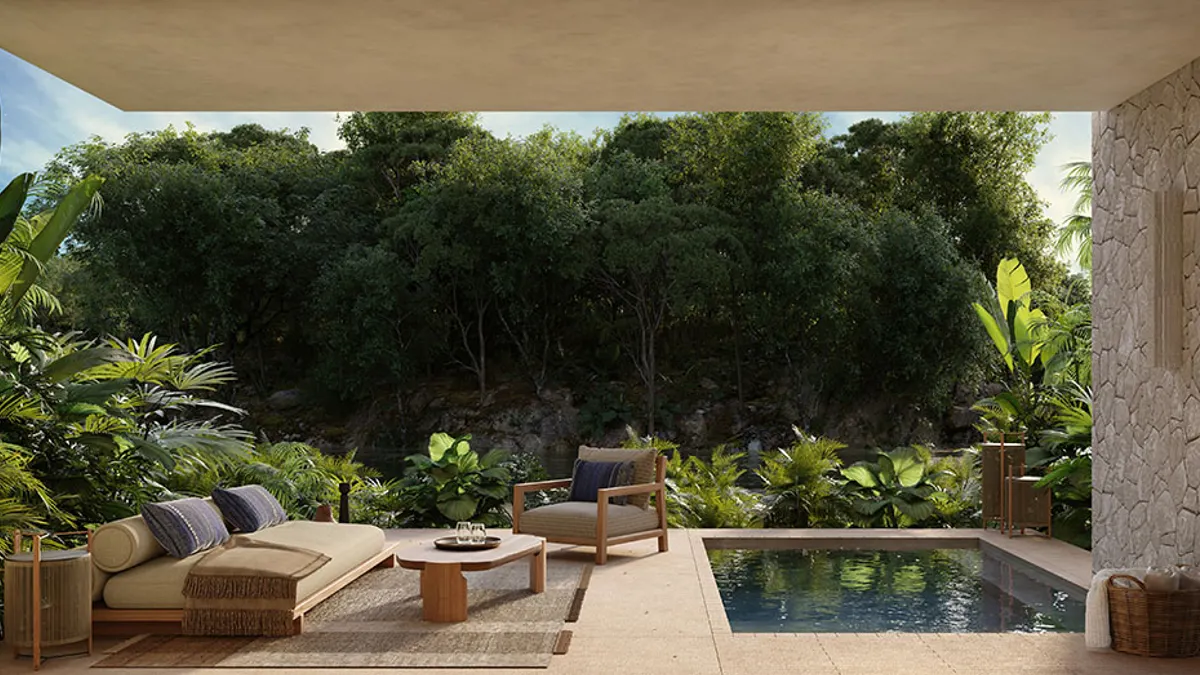Hotel Tech-in is our regular feature that takes a closer look at emerging technology in the hospitality industry.
When it comes to wellness, today’s luxury travelers are seeking more than just traditional spa and fitness offerings — they want holistic, tech-enabled and personalized experiences.
To cater to evolving demand, Marriott International has integrated spa technology across its luxury brand portfolio, from artificial intelligence-powered massages to virtual reality meditation and light therapies.
Amid this technology expansion, Marriott Senior Director of Global Spa, Fitness and Wellness Suzanne Holbrook sat down with Hotel Dive to share how the hotel company is adapting to modern wellness trends, particularly as a younger generation of luxury travelers emerges.
AI’s wellness takeover
According to Holbrook, hotel guests are “seeking experiences that are not only indulgent but intelligent, designed to meet them where they are in real time, physically, mentally and emotionally.”
The most requested products and services, she said, are those that offer personalization, convenience and consistency. AI, specifically, is delivering smarter, more tailored services that meet guests where they are, according to Holbrook.
“As AI continues to evolve over the next few years, we expect this technology to become even more intuitive, integrated and essential in delivering next-generation spa and wellness offerings."

Suzanne Holbrook
Marriott Senior Director of Global Spa, Fitness and Wellness
Marriott has integrated AI into its luxury wellness offerings in a variety of ways, including via massages and recovery therapies.
At The Ritz-Carlton Orlando, Grande Lakes and W Scottsdale, Marriott has introduced Aescape’s robotic massage technology, which uses AI and 3D imaging to deliver personalized massages for guests.
Meanwhile, at The Miami Beach Edition, Technogym technology uses advanced sensors and AI-driven assessment tools to evaluate guests’ key physical and cognitive metrics — like balance, flexibility and mental sharpness — to generate a “Wellness Age” that compares a guest’s wellness level to their real age.
Then, an AI-powered Technogym coach can adjust guests’ training programs in real time, optimizing their routines, Holbrook explained.
“As AI continues to evolve over the next few years, we expect this technology to become even more intuitive, integrated and essential in delivering next-generation spa and wellness offerings,” she said.
Sound and light therapies
Beyond AI, Marriott is using sound and light technology to offer additional rejuvenation to spa guests.
At The Ritz-Carlton, Bachelor Gulch in Colorado, Marriott has tapped TheraLight 360 to deliver full-body red and near-infrared light therapy for guests. The noninvasive treatment aims to boost cellular energy, reduce inflammation and support recovery, according to the hotel company. Additionally, the tech is clinically proven to aid in pain relief, tissue healing and improved sleep and mood with no known side effects, per Marriott.
At St. Regis Chicago and JW Marriott Desert Springs in California, Marriott is targeting antiaging, skin renewal and collagen production with FDA-approved LED masks and multimodal facial devices.
St. Regis Chicago offers a MediSpa facial treatment, which uses cold and hot therapy; ultrasound vibration; electro-Ion lifting; oxygen spray infusion; carbon and oxygen bubble; and multipolar radiofrequency to cleanse, tone and rejuvenate skin, according to Marriott.
JW Marriott Desert Springs, specifically, uses the CARA tool for treatments, combining LED light, radio frequency and electrical muscle stimulation to lift, firm and smooth skin.
Virtual reality spa experiences
Virtual reality and multisensory immersion is the next frontier of mind-body wellness as younger generations gravitate toward the technology, Holbrook noted.
Marriott uses VR to provide wellness experiences focused on immersive visuals, guided breathwork and scent.
At The Ritz-Carlton Bacara, Santa Barbara in California, Marriott uses RelaxVR as part of a multisensory experience blending guided meditation, ambient music, binaural beats and custom essential-oil aromas with 360-degree VR footage of real-world destinations.
Marriott is also integrating multisensory experiences beyond wellness spaces. Last year, the JW Marriott brand launched multisensory amenities across its portfolio. Meanwhile, Marriott’s vice president of culinary, Stephen Toevs, told Hotel Dive at the beginning of this year that multisensory experiences in restaurants would be a top hotel food and beverage trend to watch in 2025.


